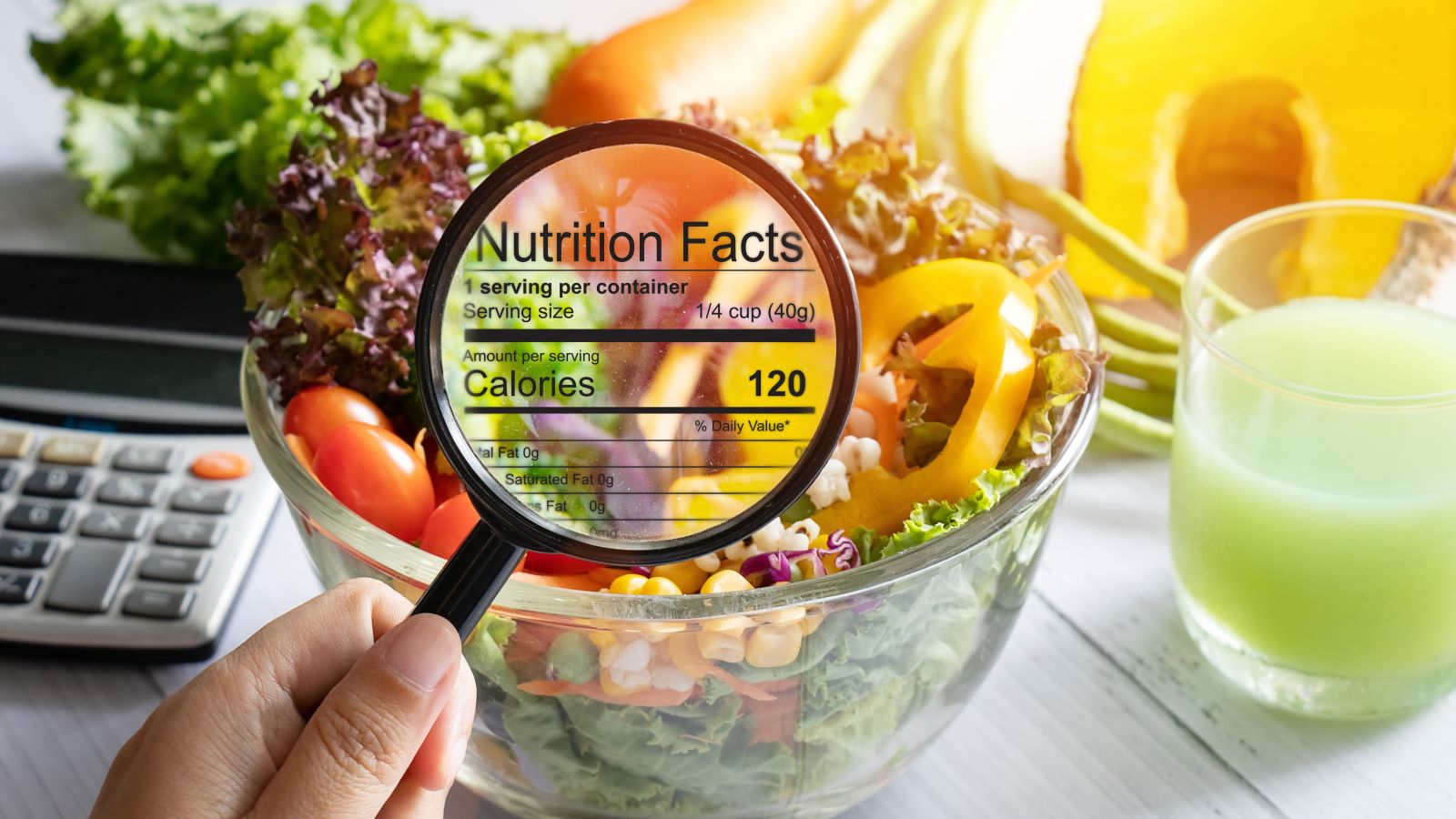From calories to sugar and everything in between, nutrition labels are full of information that can help you make healthier food choices. But only if you know what to look for.
Need a little guidance? We asked a dietitian for advice on deciphering nutrition labels.
It’s not just about calories.
Calories are the biggest and boldest number on a nutrition label. The number of calories tell you how much energy you’ll get from one serving, which is helpful for managing weight or energy intake.
But it’s important to look beyond calories too.
“There are better ways to improve or maintain your health than counting calories,” says Melissa Keeney, RDN, clinical nutrition manager at St. Vincent’s Medical Center.
In fact, focusing too much on calorie counting can actually be detrimental.
“While you may want to use calorie counts as a reference, counting them long-term can be exhausting and lead to burn out,” she says. “Using internal cues to gauge how hungry or full you are works better in the long term.”
> Related: Tired of Calorie Counting? Try Intuitive Eating
6 things to look for on nutrition labels.
Whether your goal is just to eat a balanced diet or you’re managing a chronic condition like diabetes or cholesterol, it’s important to familiarize yourself with the categories on a nutrition label, says Keeney.
Here are a few important items to look for.
1. Serving size
All of the information on the nutrition label is based on the listed serving size. You’ll also see how many total servings are in the whole container, which is important for context.
The key is that serving size is not always the same as your portion size, Keeney stresses. “You may need more or less depending on what else you are eating with the meal, your energy needs, meal timing and if you are planning to exercise or recently exercised,” she says.
2. Fat
The total amount of fat is good to know, but even more important is the breakdown of saturated and trans fat. Both saturated and trans fat can raise your cholesterol, while unsaturated fat is a healthier option.
> Related: 6 Healthy Sources of Fat to Add to Your Diet
3. Carbohydrates
Carbs are especially important to watch for if you have diabetes.
Pay extra attention to the breakdown of dietary fiber, total sugar and added sugar. Fiber keeps your digestive system moving and also helps you feel full, so aim for 25-30g per day. Too much added sugar, on the other hand, can contribute to your risk of diabetes, obesity and other health issues.
If you’re diabetic, Keeney suggests looking past just sugar on the nutrition label.
“Total carbohydrates will give you a more accurate indication of how a food will impact your blood sugars,” she explains.
> Related: How Much Fat and Carbs Should I Actually Be Eating?
4. Sodium
Keeping an eye on sodium intake is key if you have certain chronic conditions like:
- High blood pressure
- Heart failure
- Kidney or liver disease
A low sodium meal plan limits you to 1,500-2,300mg of sodium daily. Low sodium foods have 140mg of sodium or less per serving.
5. Protein
Protein helps your body build and repair tissue. It also helps you stay fuller, longer. Maintaining your protein intake is especially important if you are active or are trying to build muscle.
> Related: 7 Protein-Packed Foods to Add to Your Diet
6. The daily value
If you’re having trouble figuring out how much of a nutrient is just right, Keeney suggests looking at the daily value on the right side of the label.
“The daily value on a label tells you how much a nutrient in a serving of foods should contribute to your daily diet. This percentage is based on a daily intake of 2,000 calories, but not everyone’s daily calorie need is 2,000 calories. It may be more or less depending on many factors such as body size, physical activity, age, hormones, etc.,” Keeney says.
Still need help? Connect with a dietitian.
If you’re still struggling to translate nutrition labels, or just need help honing in on your diet, an expert can help.
A registered dietitian-nutritionist can help you make a personalized plan based on your individual needs.



